What We Do
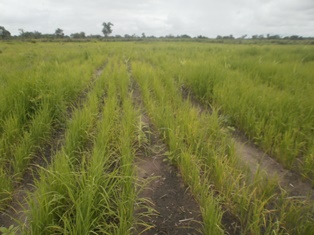
In Sierra Leone, after the Ebola ravage, the problem of nutrition, and especially the lack of proteins has grown worse. On the other hand, “Zero Hunger” which means achieving food security, improving nutrition, and providing sustainable agriculture, has been recently acknowledged by the U.N. as being, with “End Poverty”, at the top of the 17 Sustainable Development Goals to be attained within 2030, and all Heads of State have committed themselves to the target.
SBD has decided to turn first its attention in Sierra Leone to the critical aspect of the Supply Chain of Meat, the most important source of valuable proteins for human nutrition. This chain includes the Agricultural production of feeds, farming of livestock, and distribution of meat.
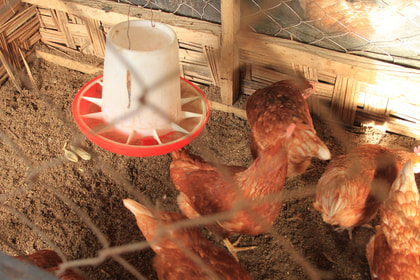
The yearly consumption of meat in Sierra Leone is one of the lowest in the world (7.3 Kg per capita, before the Ebola epidemics), and the most common type is Poultry (75%). Also the consumption of eggs is very low ( 5/ capita,year). A large percentage of these quantities is imported from far away countries (like India), frequently in bad hygienic conditions.
The main reason for the poor local meat production is the lack of domestic agricultural feed for the animals.
Under these circumstances, SBD is carrying out a “phase one” pilot programme in Makeni consisting of farming 5400 layers and producing and selling about 1,300,000 eggs/year. The layers will be fed with locally cultivated and processed agricultural feeds. Having already made detailed project studies, we expect that this pilot phase will prove the sustainability of the entire chain, paving the way for additional farming of broilers (meat production) and giving rise to scaled up projects hopefully to be replicated in other parts of the country.
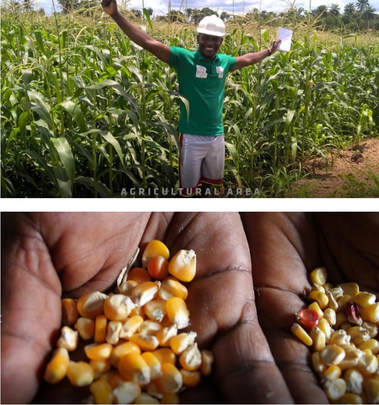
In the beginning of 2017, SLF decided to give the go-ahead for the POULTRY-AGRICULTURAL Supply Chain.
The Supply Chain consists of three areas: Agriculture, Feed Production and Poultry Farming. Each provides the essential steps to ensure the final products of meat and eggs.
Since no substantial farming existed in Sierra Leone, SBD began preparing the never-cultivated land to make it suitable for sorghum and maize production, the basic ingredients for animal feeds. 30 hectares of land were cleared and cultivated in Yoni, using imported machinery.
The soil was analyzed to determine which fertilizers were necessary. Hybrid seeds and machinery were introduced for sowing, machinery for weeding )since traditionally it was done manually), ridging and for fertilization.
5 containers of machinery and agricultural supplies were imported, despite the problem of high customs’ duties, a drawback of Sierra Leone’s current economic policies.
Additionally, we had to defeat crop disease, caused by a moth from Brazil. Considering the limited availability of land to farm in Yoni, we leased land from the community of Rorinka, a nearby village. This land had not been worked for many years, however, the local community began clearing and cultivating 20 hectares for maize and sorghum. Soon, the 20 will expand to 50. In the lease agreement SBD supplies machinery, seeds and fertilizers and collects the final products, whereas the community provides manual labor in the fields.
Expanding the amount of cultivatable land is of great importance to the development of the Agriculture Business in Sierra Leone.
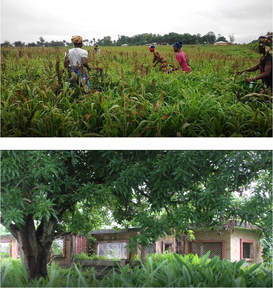
SBD compensated local farmers for the 18 months of hard work it took to collect over 200 tons of cereals to transform into feeds. Feedstuff and farming areas are housed in a Makeni Farm of 30,000 square meters where hundreds of locals obtained work.
Here the farm grew from a savannah and abandoned ruins.
The following structures were built: a fence, a well for water supply, a generator for electric autonomy, security facilities and a residential building for the chicken farmers.
We also built a 700 square meters Animal feed Factory to store ingredients. Here the cereals are dried, ground and mixed for proper nutritional formulas. The Chickenfeed Factory’s production capacity exceeds 5,000 tons/year. Creating quality feeds which are price-competitive is key to the success of the Agro-Avicultural Supply Chain.
SBD’s dream is to supply not only its own farm with feeds, but also those of local farmers, in order to be free of the constraints of imports.
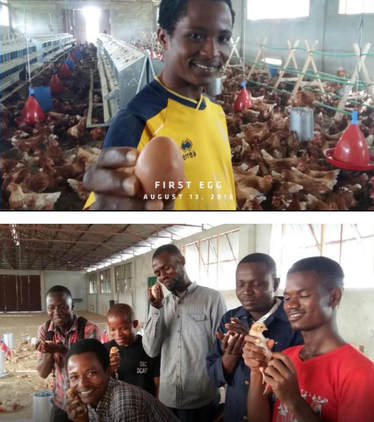
The last stage of the process is the raising of hens for egg production.
We now have 3 350 square meter sheds which house 10,500 hens who produce 2.5 million fresh eggs per year. After much study of hen raising, we are pleased to report the first egg was laid on August 13, 2018.
Expert Italian breeders have helped train the local farmers in egg production during the hens’ 2 year fertile lifespan, starting with housing 10,500 chicks to the formulation of 7 feed recipes and to the veterinary practices of vaccinations, treatments and autopsies.
The most important result of the intense 18 month training has been the professional growth of the local Sierra Leone team.
Today 13 people manage the SBD operations under the guidance of country manager Peter Kargbo. This project allows the best students to obtain great job opportunities through their degrees at UNIMAK Agricultural and Food Sciences. 7 out of 13 employees are UNIMAK graduates, while 6 are skilled machine operators and plant supervisors.
It is our hope that these people will become competent professionals who are able to manage sustainable enterprises.